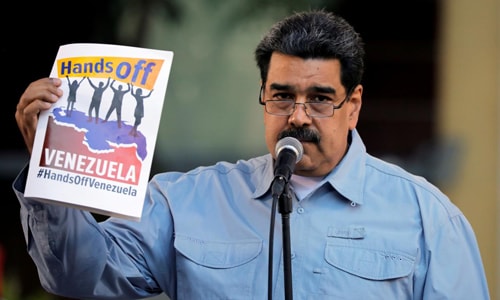US President declares state of emergency; Türkiye does not withdraw from S-400 purchase deal
(Baonghean.vn) - The US President does not want North Korea to test missiles and nuclear weapons; Britain and Russia hold their first dialogue after the nerve agent attack; Türkiye declares it will not withdraw from the S-400 deal with Russia; India and Pakistan are tense after the bomb explosion in Kashmir... are the world's top news in the past 24 hours.
Determined to build a border wall, Mr. Trump declared a state of emergency
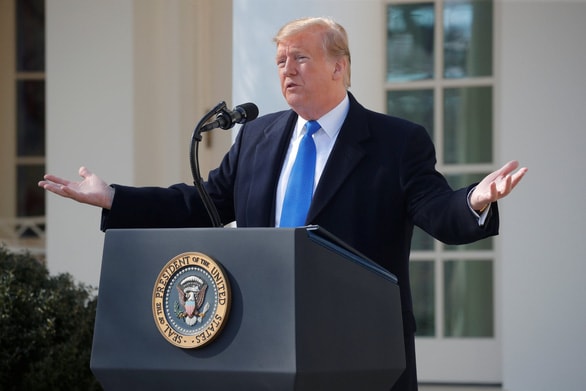 |
| Mr. Trump spoke at the White House Rose Garden from 10:30 a.m. on February 15, US time (10:30 p.m. the same day, Vietnam time) - Photo: Reuters |
US President Donald Trump has officially declared a national emergency at the southern border to get billions of dollars in funding to build the wall with Mexico that he promised during his presidential campaign.
The emergency declaration would allow Mr Trump to use $3.6 billion in military construction funds to build the border wall.
The US leader will also be able to use a budget of 2.5 billion USD from anti-drug programs and 600 million USD from the US Treasury Department's asset forfeiture fund.
Türkiye says it will not withdraw from S-400 deal with Russia
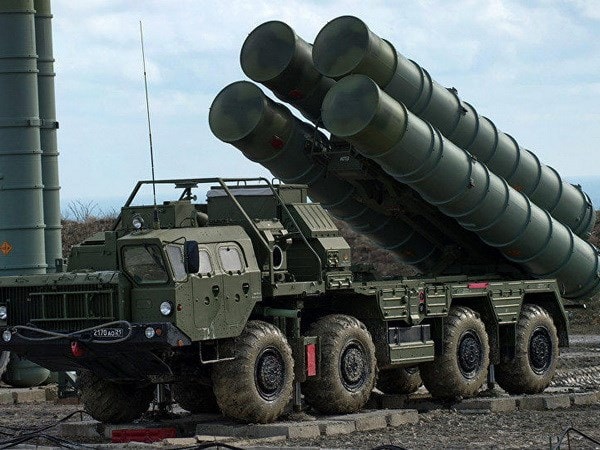 |
| Illustration photo: Hürriyet Daily News |
Türkiye will not back out of its deal with Russia to buy the S-400 missile defense system, Turkish President Tayyip Erdogan said on February 16, a day after an unofficial deadline set by the United States for Ankara to do so.
Speaking to reporters on a flight back from the Russian resort city of Sochi, where a trilateral summit on Syria between Türkiye, Russia and Iran took place, President Erdogan stressed that Ankara would push ahead with the S-400 deal.
India, Pakistan tensions after bomb blast in Kashmir
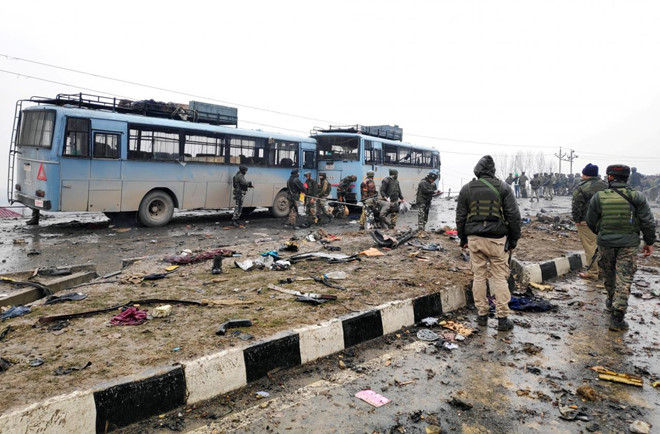 |
| Police examine the scene of a car bomb attack in Kashmir. Photo: Reuters |
Indian Prime Minister Narendra Modi has vowed a “strong response” after a car bomb explosion in Indian-controlled Kashmir on February 14 killed at least 44 police officers.
The Indian government also accused Pakistan of involvement in the incident and said it would withdraw tax incentives for Pakistan and would initiate “all possible diplomatic measures” to isolate Pakistan from the international community.
US, Thailand and South Korea conduct Cobra Gold landing exercise
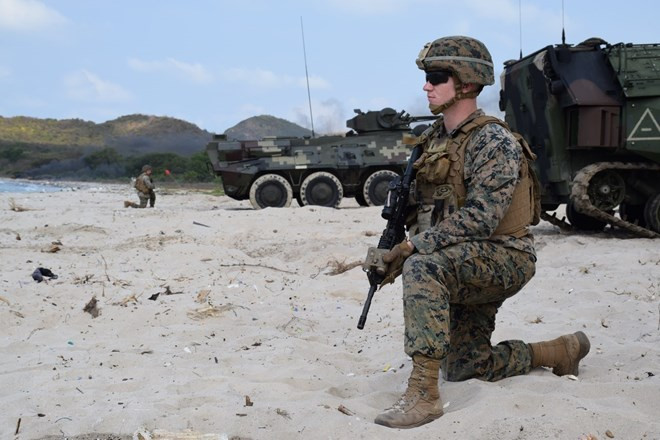 |
| US Marines participate in an exercise. Photo: Son Nam/VNA |
On February 16, host country Thailand, the US and South Korea conducted a landing exercise at Hat Yao beach in Sattahip base, Chon Buri province. This exercise is part of the annual Cobra Gold exercise, which began on February 12 and will last until February 22.
In an interview with the press, Acting Chief of the US Mission in Thailand Peter Haymond stated that the purpose of this exercise is to enhance cooperation and security interoperability between countries in the Indo-Pacific region. The exercise also demonstrates the close commitment of Thailand and the US in the long-standing alliance relationship, aiming to promote regional cooperation.
UK-Russia talks for first time since nerve agent attack
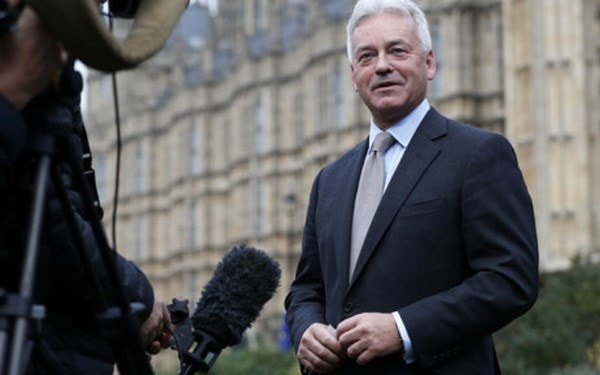 |
| British Foreign Secretary Alan Duncan. Photo: AFP |
According to AFP, on February 16, British Deputy Foreign Minister Alan Duncan met with Russian First Deputy Foreign Minister Vladimir Titov in Germany.
This is the first high-level meeting between the two countries since the poisoning of former Russian spy Sergei Skripal and his daughter in Salisbury on March 4 last year. Britain accused Russia of being behind the incident, while Moscow denied the accusation.US sanctions 5 Venezuelan security and intelligence officials
|
Venezuelan President Nicolas Maduro speaks to supporters in Caracas on February 7. Photo:Reuters. |
The US Treasury Department announced it was imposing sanctions on five officials "closely associated with Venezuelan President Nicolas Maduro.
The order allows the US Treasury to freeze all assets under US control of the five officials, as well as prevent any US citizens from doing business with them. However, the US Treasury stressed that the sanctions are "not permanent" but are intended to bring about "positive behavioral change".

